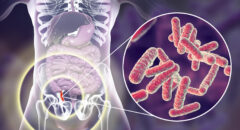many vegetables, but the heme iron in red meat is also easily absorbed by the body.
Red meat also supplies vitamin B12, which helps make DNA and keeps nerve and red blood cells healthy, and zinc, which keeps the immune system working properly. Red meat also provides protein, which helps build bones and muscles.
4. Is pork a red meat or a white meat?
It’s red meat, according to the U.S. Department of Agriculture. The amount of myoglobin, a protein in meat that holds oxygen in the muscle, determines the color of meat. Pork is considered a red meat because it contains more myoglobin than chicken or fish.
5. How much red meat should I eat?
Opinions differ here, too. Most nutritionists suggest focusing on sensible portion sizes and lean red meat cuts, for those who choose to eat it.
Ask yourself these questions:
• Are you taking in more calories than you’re burning off?
• Is red meat crowding out foods such as fruits, vegetables, and whole grains?
Government guidelines suggest 5 to 6 1/2 ounces daily of protein from a variety of sources, including lean meats, nuts, and seafood. So if you’re planning on eating a burger for dinner, it should be a 3-ounce hamburger patty, about the size of a standard fast-food burger.
Try to eat no more than 18 ounces of cooked red meat a week. You should avoid all processed meats, such as sausage, deli meats, ham, bacon, hot dogs, and sausages, as research shows an increased risk of colon cancer from consumption.
6. What are some of the leanest cuts of red meat?
For the best red meat cuts, look for those with “loin” in the name: Sirloin tip steak, top sirloin, pork tenderloin, lamb loin chops.
• Beef: Also look for







